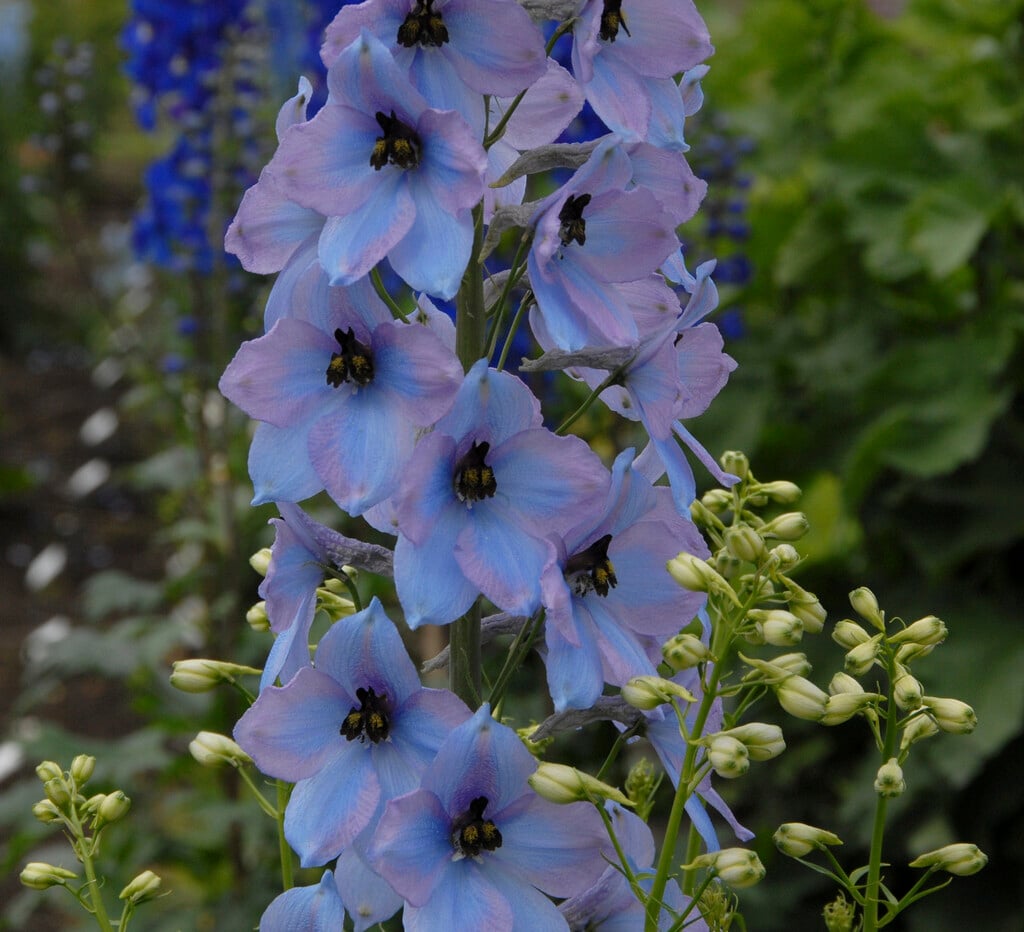Delphinium 'Morgentau'
delphinium 'Morgentau'
A deciduous, herbaceous perennial that reaches to approximately 1.5m in height when in flower. It forms a mound of green, deeply lobed leaves and flower stems of pretty light blue flowers with a pink tinge and a black centre, in summer
Size
Ultimate height
1–1.5 metresTime to ultimate height
1–2 yearsUltimate spread
0.1–0.5 metresGrowing conditions
Moisture
Moist but well–drained, Well–drainedpH
Alkaline, Neutral, AcidColour & scent
| Stem | Flower | Foliage | Fruit | |
| Spring | Green | |||
|---|---|---|---|---|
| Summer | Blue Pink Black | Green | ||
| Autumn | Green | |||
| Winter |
Position
- Full sun
Aspect
West–facing or South–facing or East–facing
Exposure
Sheltered Hardiness
H5Botanical details
- Family
- Ranunculaceae
- Native to GB / Ireland
- No
- Foliage
- Deciduous
- Habit
- Columnar upright
- Potentially harmful
- Humans/Pets: Harmful if eaten. Wear gloves and other protective equipment when handling. For further information and contact numbers regarding pets, see the HTA guide to potentially harmful plants
- Genus
Delphinium can be annuals, biennials or perennials, with palmately lobed basal leaves and showy bowl-shaped flowers in spikes, racemes or panicles
- Name status
Accepted
How to grow
Cultivation
Grow in fertile, well-drained soil in full sun. Shelter from strong winds and provide support (see staking perennials). Divide every 2-5 years to maintain vigour. See staking perennials and delphinium cultivation for further advice
Propagation
Propagate by division or by basal softwood cuttings in spring
Suggested planting locations and garden types
- City and courtyard gardens
- Cottage and informal garden
- Wildlife gardens
- Low Maintenance
- Cut flowers
- Flower borders and beds
- Wall side borders
Pruning
Deadhead spent flower spikes back to fresh flowering side shoots and cut back to ground level in late autumn.
Pests
May be susceptible to aphids, earwigs, delphinium leaf miner, delphinium moth caterpillars, slugs, snails and caterpillars
Diseases
May be susceptible to powdery mildews, delphinium black blotch, crown rot and viruses
Get involved
The RHS is the UK’s gardening charity, helping people and plants to grow - nurturing a healthier, happier world, one person and one plant at a time.
